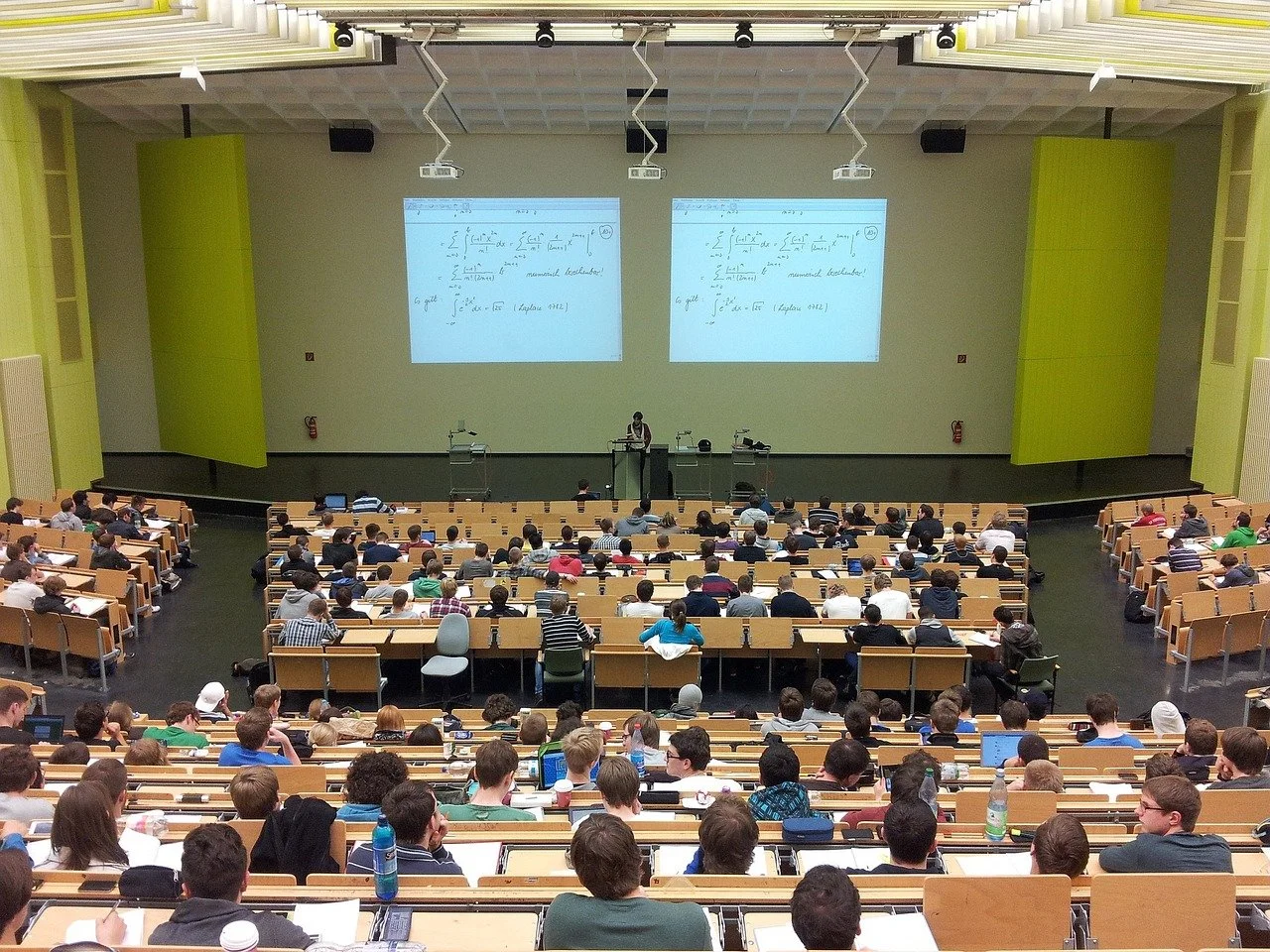Guest post: Three unusual things I did to boost learning in my class
/This is a guest post by son Sam, assistant professor of economics at the University of Houston. He explains how he taught his 2025 summer class differently from how his father and most professors teach their classes. That class was some evidence that these ideas work, he says.
photo by nikolay georgiev. (generic photo, not sam’s classroom)
First, ban phones and laptops. I thought a no-screens policy would be met with great resistance and require vigilant enforcement. It was not, and it did not. Here’s a quote from the course evaluations, which are submitted anonymously after the course ends: “Limiting of phones and screen time during class allowed me to stay focused on the lecture during class.” Allowed. Not helped, allowed. As policymakers all over the country are finally admitting, screens are a barrier to learning. Remove the barrier.
Second, keep everything within the confines of class time. That’s 30 hours of instruction. You can get a pilot’s license in 40. It’s a lot of time. In particular, stop giving homework. Group assignments done in class can take its place. They build camaraderie and, with the rise of the homework robots, could even mitigate climate change. Similarly, stop assigning out-of-class readings. If they're really as important as is always insisted, read them together. Even if a lesson or two must be cut, consider that students will be in better spirits for everything that remains when they don’t stay up late, scrubbing traces of robot from their homework and skimming passages they know will be explained.
Third, get rid of the exams. Or rather, write a test, then cut it up and paste the pieces right into the lecture slides, right after the material you’re testing. Use “clickers” and have students ring in during the lecture — for credit. Students will know how they’re doing in real time, and thus so will the professor. It’s the same questions, but less stress and more tailored instruction, and it even leaves the impression that there was no examination. From the evaluations: “I feel like we assume since we’re not going to get tested, we don’t need to properly learn material, but it had the opposite effect on me. It took the pressure off, and I just found myself paying attention and learning simply because I wanted to.”
I didn’t make them do a single homework assignment. I didn’t make them read a single word on their own. I didn’t make them take a single formal exam or even a quiz. And yet, from the evaluations: “He made me learn.”

